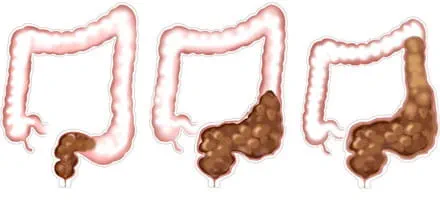Back
Encopresis: Understanding and Addressing Chronic Constipation in Children Holistically
By Shannon Strauch, PTA, STMT-1 on 11/27/2024

Encopresis is a condition primarily affecting children, characterized by the involuntary leakage of stool due to chronic constipation. It can be a challenging and distressing issue for both children and their families. In this blog, we will explore what encopresis is, its side effects, how it perpetuates constipation and rectal stretching, and holistic strategies for resolution, including the role of pelvic floor physical therapy.
What Is Encopresis?
Encopresis occurs when stool builds up in the rectum and colon due to chronic constipation. Over time, the stool stretches the rectum, dulling its sensation and impairing the ability to fully evacuate. This leads to overflow incontinence, where softer or liquid stool leaks around the impacted stool without the individual’s control.
Side Effects of Encopresis
The effects of encopresis can be physical, emotional, and social:
Physical:
Abdominal pain or bloating
Persistent constipation
Fecal leakage and odor
Rectal bleeding or irritation
Emotional:
Embarrassment or shame
Anxiety about social situations
Low self-esteem
Social:
Avoidance of activities like sleepovers or school trips
Social isolation due to odor or fear of accidents
How Encopresis Perpetuates Constipation
Encopresis creates a feedback loop of worsening constipation. Chronic stool retention causes the rectum to stretch, weakening its muscles and reducing sensation. As the rectum loses its ability to signal fullness, the body continues to retain stool, which hardens and becomes difficult to pass. This cycle often leads to more leakage and rectal damage, perpetuating the condition.
Holistic Approaches to Address Encopresis
A combination of medical, lifestyle, and physical therapy interventions can effectively manage and resolve encopresis:
Dietary Adjustments:
Increase fiber intake through fruits, vegetables, and whole grains.
Ensure adequate hydration to soften stools.
Behavioral Modifications:
Establish a regular bathroom routine, especially after meals.
Use a supportive footstool for optimal toileting posture, promoting a squatting position.
Emotional Support:
Create a non-judgmental environment to reduce stress and embarrassment.
Work with a counselor or therapist to address psychological impacts.
Physical Activity:
Encourage regular exercise to stimulate bowel motility.
The Role of Pelvic Floor Physical Therapy
Pelvic floor physical therapy (PFPT) plays a critical role in managing encopresis by addressing the muscular and neural factors contributing to constipation and incontinence. Key interventions include:
Biofeedback Training:
Teaches children to coordinate pelvic floor relaxation with rectal emptying, improving bowel control.
Manual Therapy:
Releases tension in pelvic floor and abdominal muscles, enhancing bowel motility.
Strengthening Exercises:
Restores tone to overstretched rectal and pelvic floor muscles.
Education:
Provides tools and strategies for healthy bowel habits and pelvic floor coordination.
Closing Thoughts
Encopresis is a complex but treatable condition. By addressing the root causes of constipation, incorporating holistic lifestyle changes, and leveraging the expertise of pelvic floor physical therapy, children and families can find relief and regain a sense of normalcy. Early intervention and a comprehensive approach are key to preventing long-term complications and improving quality of life.
If you or a loved one is experiencing encopresis, consult a healthcare professional or pelvic floor physical therapist to develop a personalized treatment plan. Reach out to us at Pelvic Health Center in Madison, NJ to set up an evaluation and treatment! Feel free to call us at 908-443-9880 or email us at receptionmadison@pelvichealthnj.com.
Read More:
How Chronic Pelvic Congestion in Men Contributes to Prostatitis By Shannon Strauch, PTA, STMT-1 on 12/11/2024 How lymphatic issues can cause symptoms of prostatitis Prostatitis and Tight Pelvic Floor Muscles: A Comprehensive Guide By Shannon Strauch, PTA, STMT-1 on 12/10/2024 How a tight pelvic floor can be the reason for prostatitis symptoms
Are you ready to live pain free?
Request An Appointment